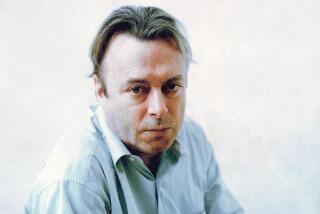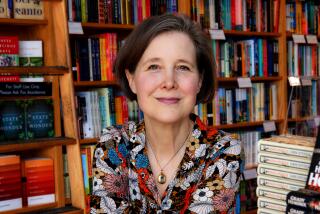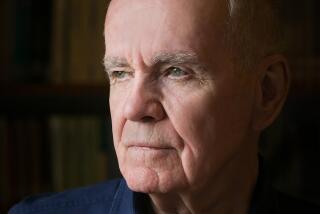V.S. Pritchett; English Writer Hailed for Mastery of Style, Power of Observation
- Share via
V. S. Pritchett, considered one of England’s premier men of letters for his 40 books of short stories, novels, essays, literary criticism and autobiographies, has died. He was 96.
Pritchett, who suffered a stroke in January, died Thursday at a London hospital, according to his son, Oliver Pritchett.
His writing career spanned six decades and drew accolades for its appeal to the discerning general reader.
A reviewer in the New York Times Book Review once called Pritchett “one of the greatest stylists in the English language.”
Reviewer Penelope Mortimer once said: “[His position] in the world of letters is unassailable. . . . [His] reputation for excellence is unquestionable and secure.”
Charles Champlin, the former film critic and arts editor for The Times, said in the Los Angeles Times Book Review in 1982 that Pritchett was a master of the short story.
“Pritchett is a matchless observer but more: an appreciator of what he observes and, accordingly, a writer to be appreciated, profoundly,” Champlin wrote.
Pritchett’s books included a biography of the Russian writer Anton Chekhov; critics often called his stories “Chekhovian.”
“He had the gift which only the greatest critics had,” said author Gore Vidal in an interview with Associated Press from his home in Italy. “He read with understanding and described what he had read. You would have thought that would be easy, but most critics don’t know how to do it.”
Pritchett’s travel book, “Dublin: a Portrait,” appeared in 1967; the acclaimed “On the Edge of the Cliff” book of short stories was published in 1979, and he edited the “Oxford Book of Short Stories” in 1981.
He was knighted in 1975 for his service to British literature.
As a youth, he wanted to be a roving journalist; it was a profession he later admitted he was unsuited for.
“If I’d gone to see someone I should have put down what he’d said,” he told The Times in 1980. “Instead, I would have put down what he didn’t say or should have said.”
In an essay published in the London Observer in 1981 to mark his 80th birthday, Pritchett groused that the “descendants of ordinary people who read their Dickens and the Victorian and Edwardian periodicals have given up the printed word for the instant sensation of the sight and sound, for pictures on the screen.”
“No professional writer,” he wrote, “becomes famous until his work has been televised or filmed; the rest of us may have to live in the conceit of being like the lamenting figures in the chorus of the Greek drama. That chorus was, in its tedious, humble way, the indispensable gang of prosing human moralists chanting the general dismay as they watched the impersonal and violent passions murderously at work on a stage without backcloth.”
Victor Sawdon Pritchett was born in Ipswich, England, on Dec. 16, 1900. He called the first volume of his autobiography “A Cab at the Door,” recalling his father’s penchant for frequent moves to elude his creditors. “It gave me a lifelong love of travel,” he said.
He credited his mother with giving him an eye for detail. Though not well educated, “she was a tremendous talker and could set a scene.”
He left school at 15, saw his early essays rejected, and moved to Paris at 20 to work in the glue trade. His first published work, in a London magazine, was an account of an 80-mile walk from Paris to Orleans.
Going to live in France was the “beginning of a passion . . . for identifying myself with people who were not my own and whose lives were governed by ideas alien to mine,” he said.
Reporting from Ireland and Spain for the Christian Science Monitor gave him his first regular income as a writer. He then settled on a literary life in London. Starting in 1926, he was a contributor to the left-wing weekly New Statesman, and became a director of it in 1946.
Vidal recalled reviewing a book of Pritchett’s essays two decades ago and suggesting that “it would be very nice for literature if he lived forever. I never said that about any other writer. He was the best critic in the English language.”
Among his other honors was an honorary doctorate in literature from Harvard University in 1985.
Pritchett is survived by his wife, Dorothy, and a son and daughter.
More to Read
Sign up for our Book Club newsletter
Get the latest news, events and more from the Los Angeles Times Book Club, and help us get L.A. reading and talking.
You may occasionally receive promotional content from the Los Angeles Times.







